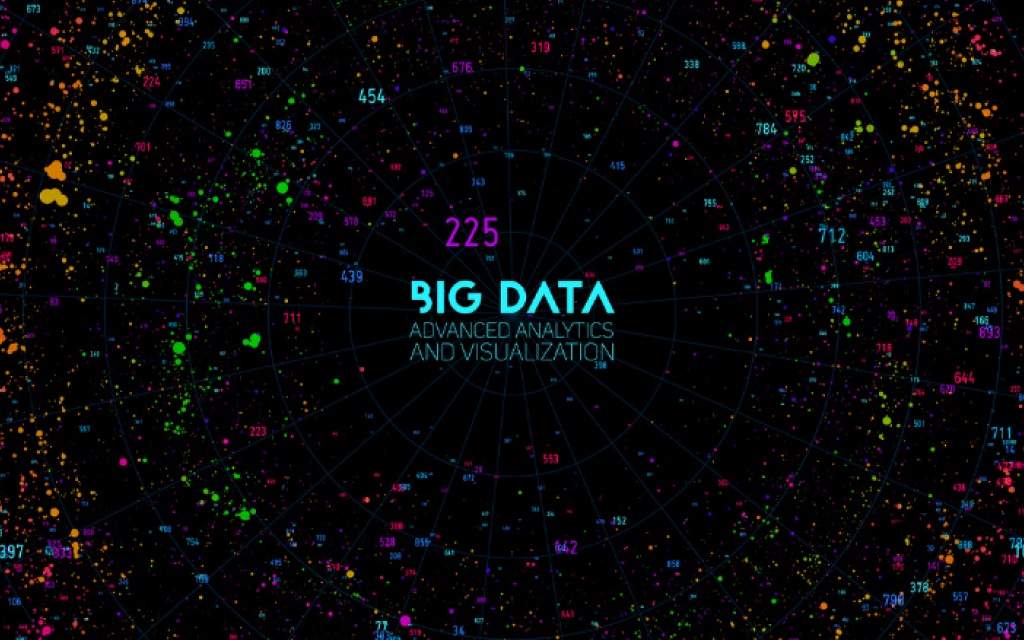
La nueva revolución tecnológica de los números: de Arpanet al Big Data
La nueva revolución tecnológica de los números: de Arpanet al Big Data

21.09.2021
Existen dos posiciones ontológicas contrapuestas en la discusión sobre lo que es real y lo que no. O bien los números están en el mundo para ser descubiertos, o el hombre ha inventado los números y así ha creado la realidad, encontrándose a sí mismo encerrado en su propia creación. Los primeros filósofos de la antigua Grecia basaron sus escuelas de pensamiento en la medición del mundo, en la belleza de la geometría para calcular superficies, distancias y números; aparecieron entonces perímetro, periferia, radio, pi, omega, potencias, raíces y un largo etcétera, pero, aún no se daban cuenta de que sus mediciones servían a un sistema creado por ellos, a un lenguaje dotado de significado por ellos y para ellos mismos.
Para los pitagóricos el uno (1) significaba toda esencia de lo bueno y fundamento de cuanto existe, el dos (2) todo lo masculino, el tres (3) lo femenino… el diez (10) el número perfecto, la Tetraktys, totalidad en movimiento. Para los pitagóricos cada número tenía un simbolismo sagrado y cierta capacidad de “desentrañar el orden oculto del mundo” (Luque y Calero, 2019, pág. 12), de revelar el arjé (del griego ἀρχή, «principio» u «origen»), o de revelar el ápeiron o lo ilimitado, lo que está más allá del inicio y el fin, más allá de todo cuanto existe, existirá y existió. Lo que resulta más inquietante en este misticismo numérico es la finitud del hombre y su capacidad de acercarse a medir el infinito, de llegar a un gúgol ( 10^100, tan grande que supera la cantidad de átomos existentes en el universo) o de crear realidades a partir de ellos.
Para los dataístas esta discusión filosófica no tiene cabida, los números son lenguajes computacionales dotados de significado, por lo tanto, el universo es un flujo constante de información almacenada en ceros y unos. Para los dataístas cualquier fenómeno o entidad adquiere valor en tanto se pueda reducir a números, es decir que si para los pitagóricos el 1 era toda esencia de lo bueno y fundamento de cuanto existe, para los dataístas el 1 representa una probabilidad alta de que un cliente compre un producto, y el 2 podría ser el total rechazo a la campaña publicitaria hecha el mes anterior y el regaño o despido de algunos miembros de la empresa (por poner ejemplos exagerados). Si bien los datos al igual que las palabras se encuentran cargados de significado, esta “traducibilidad” de los datos ha sido el causante del auge y caída de miles de empresas, el éxito o fracaso de un deportista o de campañas publicitarias, del despido de personal y de grandes caídas o subidas en la bolsa de valores; todo porque se ha reducido cada expresión, sentimiento y acción humana a categorías numéricas, a estadísticas y probabilidades.
El dataísmo, como han argumentado diversos autores, es la “religión de los datos”; la creencia absoluta (o realidad tal vez) en el Big Data (los macrodatos). Tiene mártires, herejes y un enorme e inconsciente séquito de seguidores compartiendo su información personal cual libre albedrío. Estos datos masivos permiten elaborar sofisticados patrones de conducta predictivos; el ser humano es entonces un simple algoritmo manipulable, listo para ser procesado y analizado, al servicio de las estadísticas ordenándole que hacer y qué no hacer.
No todo es malo en esta religión, el dataísmo también ha sido estratégico no solo para la toma de decisiones personales o empresariales, si no que ha permitido diseñar políticas públicas en base a suplir las necesidades de una población, las cuales han quedado registradas a través de datos. Estos macrodatos permiten realizar también un acercamiento más profundo a problemáticas actuales, plantear preguntas que no se hubiesen hecho las empresas sin la recolección de datos estadísticos, detectar problemas, falencias o sectores con problemas, para así dar una solución a tiempo, ya sea mejorando el problema o creando nuevos productos que suplan las necesidades del mercado.
Lo importante no es entonces recolectar más datos, ni preguntarnos qué vino primero, si el número o la realidad, sino pensar en soluciones reales, que atiendan a necesidades actuales a partir de los datos, generando así nuevas estrategías que permitan un mejor uso y mejores resultados.
y tú ¿crees en los datos?
Datos que debes saber de los datos:
- Un dato es una representación simbólica, que representa diferentes cantidades de información.
- Los datos son sucesos, realidades, entidades, que de manera individual no significan nada en tanto un ser humano lo dote de un significado.
- Los datos adquieren significado cuando son observados bajo la lente de un investigador/a con un objetivo, y pueden adquirir diferentes significados dependiendo del interés de quien los use.
- Existen maestrías en análisis del Big Data.
- Los especialistas en Big Data son de los profesionales más demandados en tecnología.
Redacción Alejandra Lenis Mendoza
Área de Comunicaciones
C-Transmedia


